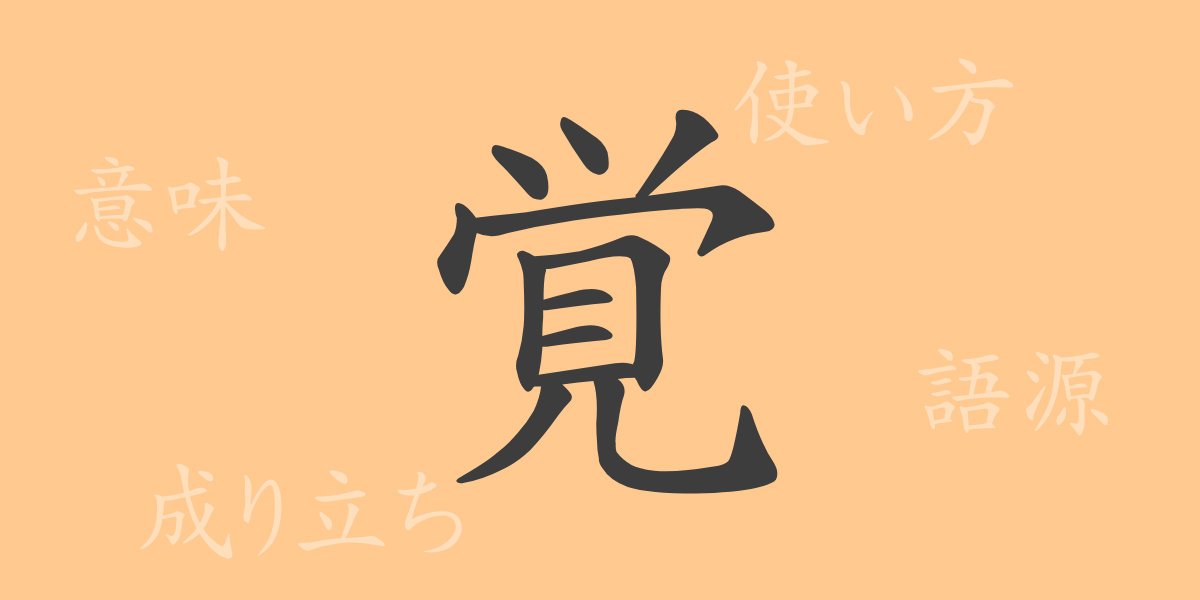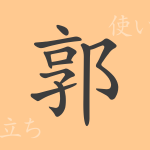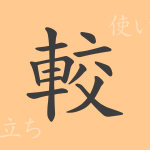The Japanese language contains a multitude of kanji, each with its unique history and meaning. Today, we will focus on the commonly used kanji “覚” (Kaku), delving into its rich history and diverse usage. This kanji is more than a collection of strokes; it is a living symbol within our culture and language. In this article, we will explore the origins of “覚” (Kaku), its meanings, usage, readings, and related idioms and phrases in detail.
The Origins of 覚 (Kaku)
The kanji “覚” (Kaku) has its roots in ancient Chinese oracle bone script. It originally derived from a pictograph representing a thread wrapped around a hand, which led to the meaning of “to remember something by tying a string around one’s hand.” Over time, it evolved to encompass concepts related to consciousness and sensation. Today, it is an important kanji used in various meanings.
Meanings and Usage of 覚 (Kaku)
The kanji “覚” (Kaku) has multiple meanings, including “to remember,” “to become aware,” and “to understand.” It also conveys the sense of renewing one’s emotions or realization. This kanji is widely used in everyday conversation, literature, and business contexts. It is particularly seen in the verb “覚える” (Obo-eru – to remember) and in terms indicating change, such as “覚醒” (Kakusei – awakening).
Readings, Stroke Count, and Radical of 覚 (Kaku)
The kanji “覚” (Kaku) has multiple readings, reflecting its rich form and meaning.
- Readings: The on’yomi reading is “かく” (Kaku), and the kun’yomi readings are “おぼ.える” (oboe-ru), “さ.ます” (sa-masu), “さ.める” (sa-meru), and “さと.る” (sato-ru).
- Stroke Count: The stroke count for “覚” (Kaku) is 12.
- Radical: The radical of this kanji is “見” (Mi-ru – to see).
Idioms, Phrases, and Proverbs Using 覚 (Kaku) and Their Meanings
The idioms and phrases that include “覚” (Kaku) reflect the breadth of meanings this kanji holds. Here are some examples:
- 自覚 (Jikaku) – Being conscious of one’s actions or state.
- 覚悟 (Kakugo) – The mental preparation for difficult or dangerous situations.
- 覚醒 (Kakusei) – The state of being clear-minded or reaching a new understanding.
- 記憶 (Kioku) – The act of retaining past events or information in one’s mind.
- 覚えが悪い(Obo-ega-waru-i) – A phrase indicating poor memory or difficulty in remembering.
These idioms and phrases demonstrate the expressive power of “覚” (Kaku) in the Japanese language.
Conclusion on 覚 (Kaku)
The kanji “覚” (Kaku) plays a very important role in the Japanese language due to its diverse forms and meanings. From its etymology to contemporary usage, readings, and related idioms, this kanji is deeply rooted in Japanese culture and language. Every time we use “覚” (Kaku) in our daily lives, we can recall its rich history and meanings. Let’s continue to explore the world of our memories and consciousness through this kanji.

























